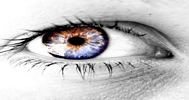Food has been described as ambrosia and the elixir if life. For some, eating is a biological necessity for others it is a passion that can turn into an obsession. Experts define food addiction to be a disorder where the addict is preoccupied with food, the availability of food, and the pleasure of eating. There are three recognized addictions:
• Overeating, where the addict has no control over the amount or the number of times he eats. The person has no concept of being overweight or the servings a person must eat normally. Being an overeater, the addict will indulge in uncontrolled eating binges. Being obese, the addict will be prone to hypertension, diabetes, heart diseases, arthritis, and cancer.
• Bulimisa Nervosa, where the addict binges and then tries to maintain weight by vomiting, using laxatives, excessive exercise, or even fasting. Such addicts will develop dental problems like thinning of enamel, excessive number of cavities, swollen salivary glands, fluid and electrolyte disturbances, as well as calluses and scars.
• Anorexia Nervosa, where the addict fears weight gain and so starves himself. Obsessed with weight gain and body shape anorexics will exhibit obsessive behaviors in maintaining themselves. In the process, they develop problems like disruption of menstrual cycle, emancipation, hair loss, unhealthy skin pallor, and a lack or fluids.
The most common health problems are obesity, alcoholism, diabetes, bulimia, food allergies, and food intolerance.
The signs that you are addicted to food are:
• Uncontrolled cravings for particular foods. Some are addicted to sweets, others to soft drinks, yet others to coffee.
• Continuous or frequent eating. No fixed meal times an addict will eat throughout the day.
• Sharpened hunger on consumption of specific foods.
• Anxiety attacks, feelings of nervousness, low sugar, a headache, stomach gripes and grumbles.
• Withdrawal symptoms.
• Fatigue.
• Extreme irritations.
• Intolerance to foods.
• Feelings of guilt at having eaten.
The very cornerstones to curing the addiction are to:
• Identify and avoid what are known to be trigger foods or drinks.
• Put into practice a diet that is nutrient rich, healthy, and helps maintain or loose weight.
• Make lifestyle changes. Adopt a healthier lifestyle and include plenty of fresh air as well as exercise.
• Focus on personal and spiritual development. Seek inner peace, calm, and joy. Practice meditation and deep breathing.
• Plan to have activity filled days to distract the mind from food.
Even if you have a niggling doubt that you may be a food addict you must seek help. Nip the problem in the bud before it grows into something unmanageable and serious. You must consult a nutritionist, doctor, psychologist, or an eating addiction center or specialist. There are programs run by groups like Overeaters Anonymous that run 12-step programs which are extremely beneficial.



